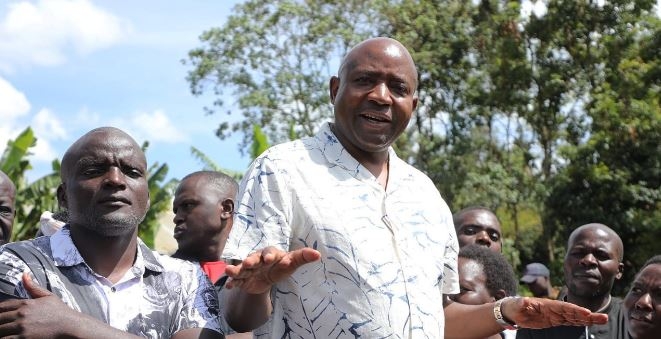
 Gospel Musician Betty Bayo dies / HANDOUT
Gospel Musician Betty Bayo dies / HANDOUTThe gospel music fraternity and Kenya is coming to terms with the death of gospel artist Beatrice Wairimu Mbugua, popularly known as Betty Bayo.
She has passed away following a battle with blood cancer (leukemia) at an advanced stage.
Fellow artists and industry stakeholders have poured in tributes, describing her as a humble, gifted, and inspirational figure whose music touched countless lives.
Kenyans have come out to mourn Betty Bayo, describing her as an instrumental part of the music industry.
Musician Daddy Owen said Bayo was a true vessel of God whose voice and ministry touched countless lives.
“Her passion for the gospel will never be forgotten. To her family, friends, and the entire Gospel fraternity, may God comfort and strengthen you,” he said.
Betty Bayo’s ex-partner, Pastor Kanyari, with whom she had two children, confirmed her passing as his team headed to Kenyatta National Hospital on Monday, where the late gospel artist had been receiving treatment.
In his official social media, Kanyari wrote, "RIP Mama Sky. The mother to my kids."
Several industry friends, including renowned Bishop Benson Gathungu Kamau, have since taken to social media to mourn the artist, who is best known for her hit 11th Hour.
Who was Betty Bayo?
Betty Bayo, born Beatrice Mbugua, was a Kenyan gospel singer whose life has played out at the intersection of talent, faith, scandal, and second chances.
Betty Bayo’s name first rose in Kenya’s gospel music scene more than a decade ago, her songs resonating with faithful audiences drawn to her emotion, simplicity, and Kikuyu-infused praise style.
According to past interviews and public records, Bayo was the youngest of eight siblings and grew up in Banana, Kiambu County.
She often recounted being raised in a humble household and leaving school in Form Two due to financial difficulties. She worked as a househelp for about two years before her family managed to gather enough resources for her to resume her education.
Those early hardships—domestic work, small jobs, and her grounding in church—became central to her personal story and helped her connect deeply with working-class listeners and single mothers.
Bayo built a loyal audience with emotionally honest worship songs and an unusually open public persona that kept her in the headlines for more than a decade.
Today, she remains a familiar figure in the industry, though her journey has been shaped as much by personal trials as by her music.
Bayo rose to prominence in the early 2010s during the surge of contemporary Kikuyu gospel music. She became widely recognised for hits like 11th Hour, Gatho, Jemedari, Thiiri, Udahi, Ndîkerîria, Maneno, Agocwo, among others.
Her style combined worship messages with real-life issues—money struggles, family pressures, heartbreak, raising children, and moments of wavering faith. The conversational, narrative approach in her songs allowed her to resonate with audiences far beyond traditional church listeners.
Bayo, best known for songs such as Jemedari, Eleventh Hour, and Siyabonga, began her music career in central Kenya before gaining national airplay.
Her compositions often centre on encouragement and the search for inner peace, themes that connected deeply with church communities and gospel radio audiences.
Her vocals, warm, steady, and unhurried, helped cement her place among female gospel artists who shaped the 2010s gospel wave.
Today, Betty Bayo’s music continues to enjoy airplay, particularly on Kikuyu gospel stations and digital platforms.
She remained active in church concerts and community gatherings, often performing before audiences familiar with her journey.
Her legacy is still being written not only in the lyrics she sings but also in how she continuously navigated faith, family, and public identity in full view of a nation that has watched her grow.
For many of her supporters, Bayo represented the quiet strength of starting again, and the belief that healing, though slow, is possible.
In a career marked by high acclaim and public challenge, Betty Bayo emerged as both musician and survivor a testament, many say, to the resilience behind the voice that first drew them in.
She was an ex-wife to Pastor Victor Kanyari, with whom they had two children.












